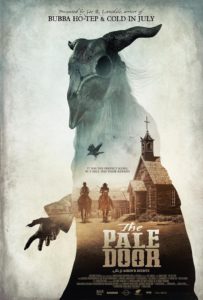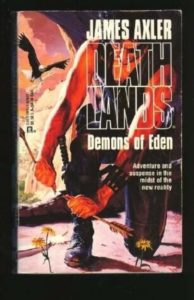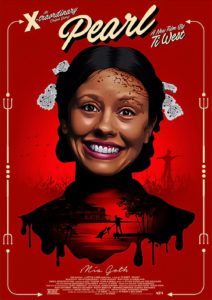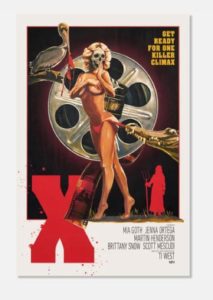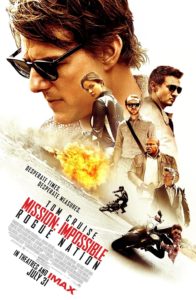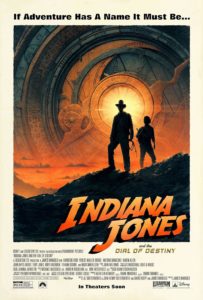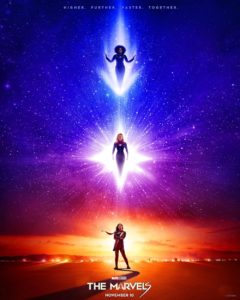 The Marvels marks the first MCU movie that I did not see in a theater. 15 year run, that’s not bad, but still: pretty big sad face emoji. Plus, it makes me irrationally feel responsible for how said movie kind of tanked. (It’s not like I didn’t want to see it. But it pretty much requires a grandparent in town to take over the kids, while the movie is still on its theatrical run. And because of a random illness outbreak, we missed our window.)
The Marvels marks the first MCU movie that I did not see in a theater. 15 year run, that’s not bad, but still: pretty big sad face emoji. Plus, it makes me irrationally feel responsible for how said movie kind of tanked. (It’s not like I didn’t want to see it. But it pretty much requires a grandparent in town to take over the kids, while the movie is still on its theatrical run. And because of a random illness outbreak, we missed our window.)
I mean, I shouldn’t feel responsible. There’s a pretty obvious culprit for why, and it is how comic book movie fans, painted with a broad brush stroke, are less interested in lady-helmed movies than dude-helmed movies. If you want to make the capitalist argument of “give the people what they want,” well, okay, I can understand that. But I would counter with the artistic argument of “lead from the front.” Anyway, enough about all this. This more important question is, was it good?
The MCU in general has been a mess basically since the credits rolled on Endgame[1]. It’s not quite rudderless. It has been dealing[2] with the aftermath of the Blip. It has been more and more broadly introducing the multiverse, and to a lesser extent it has been waving Kang around as an existential threat. But none of these things have been tied together tightly the way it was done in the old days, when every single movie was part of the whole, whether you knew it in prospect or only in retrospect.
So where do The Marvels fit into all of this? During (let’s say) a deleted scene at the end of Captain Marvel 30 years ago, Carol Danvers took out her aggressions on the Kree Empire’s AI emperor, so the kind of thing that happened to her would never happen to anyone else. Fast forward to the present, where for comic book logic reasons, an existential threat to the intergalactic superhighway has (at a quantum level) entangled Captain Marvel, Ms. Marvel (she had a TV show) and Monica Rambeau (she was a secondary character in a different TV show). Also, the threat turns out to have a personal component, because that’s just better writing than if it did not.
So they have to learn to get along, and how to sort out their differences, and how to be successfully introduced to non-TV audiences, while going on a road trip through the galaxy trying to resolve the driving concern of the film. And they do it lady-style! …which sounds like I’m making fun, but seriously, since the dude-style version of this is just a bunch of punching each other, it’s nice to see the alternative.
In the end, a) I liked the movie, and okay I usually do; I’m forgiving of this particular genre and especially universe. But I think it was pretty good. Light and funny in the way I imagine The Sisterhood of the Traveling Pants to have been, except with lots of punching and explosions[3]. And self-contained, which is a good thing when the attempts to not be self-contained have been so tragic. But b) the MCU at large is still a mess; nothing there has been improved by this movie, it was just a good in itself. And c) really it was more like 90% of a good. All the scenes with Nick Fury’s SABER space station were present for no other reason than to set up 10 minutes of highly gratuitous fan service. I’m not saying those scenes weren’t amusing in the moment, just that boy do they age poorly. (And to be clear, I saw this movie three days ago, which gives you an idea.)
[1] with the sole exception of the Spider–Man movies, and probably because Sony makes them with the approximate assumption that people are watching those three movies and nothing else in the MCU. Which is a bad assumption, but the unintended results cannot be argued. (Also, I’m being unfair to James Gunn here by not mentioning his (also closer to stand-alone) efforts.)
[2] badly. It has been dealing badly with the Blip, because Kevin Feige isn’t willing (or doesn’t know how) to go ahead and make even one movie or one TV show that is more than 10% a drama, and give his characters room to breathe and to grieve. Because that, much like ladies in charge of the movie, won’t put butts in seats. So maybe it’s not entirely Feige’s fault after all, I suppose.
[3] “But you said…” No, right, I know. It’s still a Marvel movie, come on. But they didn’t punch each other! Which is important.
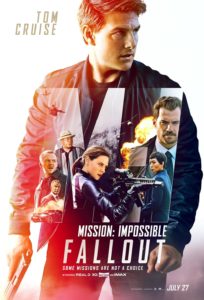 Another few weeks, another new Mission Impossible movie. And boy are these things getting more and more serialized!
Another few weeks, another new Mission Impossible movie. And boy are these things getting more and more serialized!